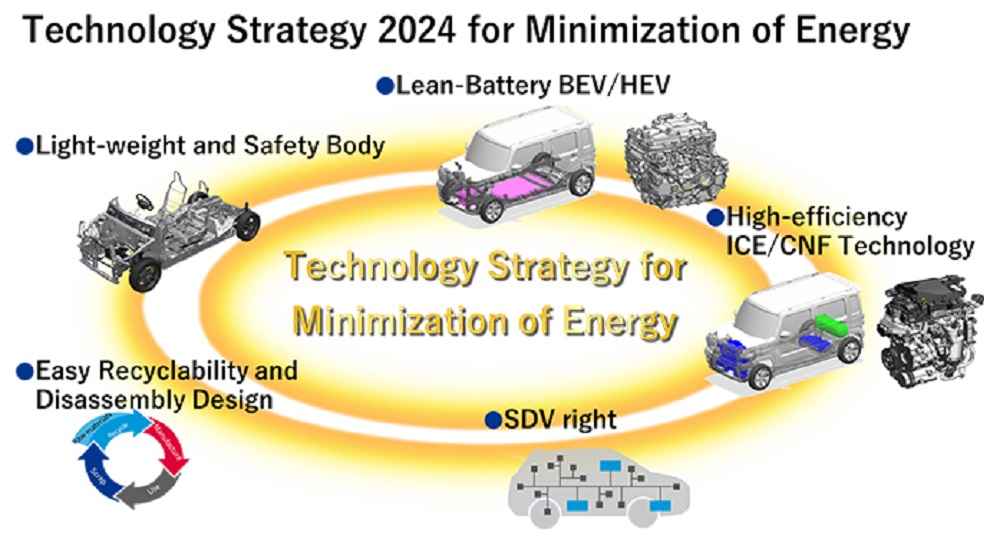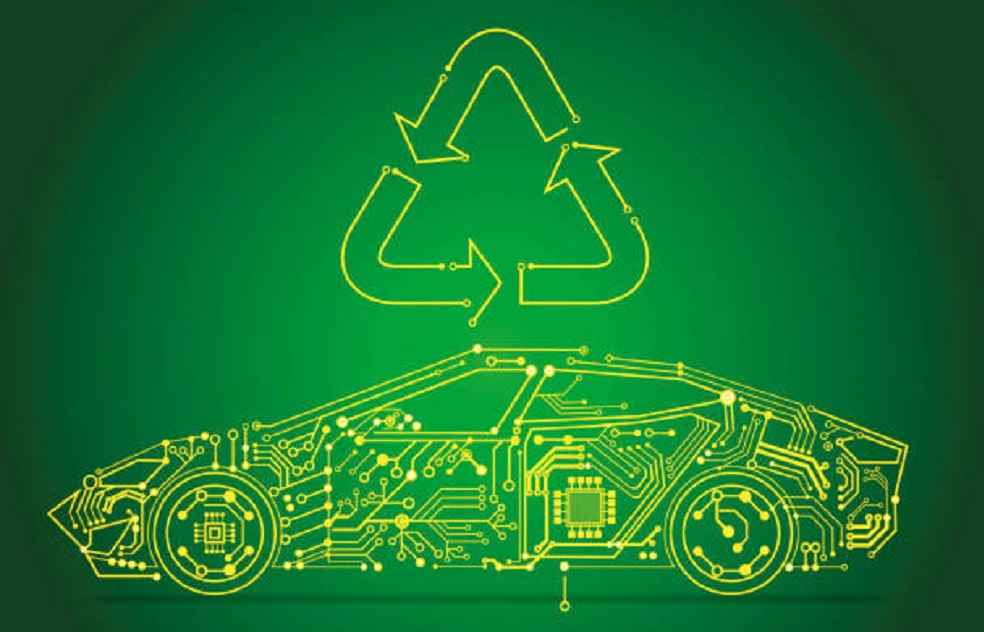Suzuki Motor Corporation has charted a visionary ten-year course focused on slashing energy consumption and steering towards a carbon-neutral world. This comprehensive plan promises groundbreaking advancements across vehicle design, energy-efficient engines, electric vehicle technology, and sustainable manufacturing.
HEARTECT Advancements
Suzuki’s renowned compact and lightweight vehicles will undergo major enhancements. The HEARTECT platform, known for its balance of lightness and safety, will evolve further to curb CO2 emissions during both the use and production phases. This dual strategy aims at conserving resources and cutting CO2 emissions throughout the vehicle lifecycle.

Lean-Battery BEV/HEV Innovations
Aiming to elevate its electric and hybrid vehicle portfolio, Suzuki will integrate energy-efficient technologies tailored to varying renewable energy ratios and usage conditions across regions. The new models will feature small, efficient electric units and lightweight batteries, embodying Suzuki’s ‘Sho-Sho-Kei-Tan-Bi’ philosophy—simplicity, compactness, lightness, and beauty. This approach ensures vehicles that minimize energy consumption while maximizing performance.
High-Efficiency ICE/CNF Advancements
Following the success of the Z12E engine with its impressive 40% thermal efficiency in 2023, Suzuki will continue pushing boundaries in internal combustion engine technology. Plans include a global rollout of this high-efficiency engine, further enhanced with carbon-neutral fuels and next-generation hybrid systems. This reflects Suzuki’s dedication to reducing energy consumption and CO2 emissions in traditional powertrains.

The Future of Software-Defined Vehicles
In the realm of Software-Defined Vehicles (SDV), Suzuki introduces the ‘SDV Right’ system. This cost-effective platform will focus on minimizing energy consumption through seamless hardware and software integration. Optimizing both wired and wireless over-the-air (OTA) updates, Suzuki aims to deliver technologically advanced, cost-effective vehicles. The shared hardware and reusable software design will lower component and development costs, providing greater value to consumers.
Circular Economy: Easy Recyclability
Suzuki envisions a shift from the traditional linear economic model to a circular economy. Highlighting product design for easy disassembly and recycling, this strategy conserves resources and mitigates environmental impact. Prioritizing recyclability and reuse, Suzuki targets a substantial reduction in total energy consumption associated with its vehicles.
NEW LAUNCH | ZF LIFETEC ACR8.S: Boosting Safety and Comfort with Seat-Integrated Belts





